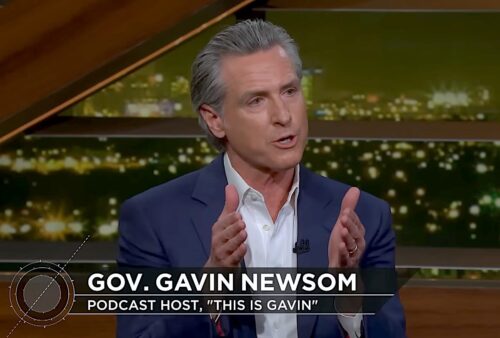
And some of those responsible for one of the blockades in Hamilton say they will be back.
The regional transit agency Metrolinx said that disruptions took place on or near three separate rail lines in Toronto.
One incident ended relatively quickly and trains were put on a detour to bypass another. A third was being watched by staff to see whether it would be necessary to adjust service.
Although short-lived, the blockades highlighted the vulnerability of mass transit to protest.
At the busiest time for commuters, trains were canceled or turned back, buses were put on to try to bridge gaps in service and extended delays affected tens of thousands of people.
The disruptions had a major spillover effect at Union Station, in downtown Toronto, the country’s busiest transit hub and a terminus for all GO train routes.
Through the early part of rush hour, hordes of commuters were waiting to see how or if they could get home and Metrolinx temporarily encouraged people to stop arriving.
After providing protestors w/ an injunction & encouraging a peaceful departure, @TorontoPolice began moving protestors from rail tracks in the area of Lambton Arena. Most protestors were cooperative; arrests were made when necessary
— Toronto Police (@TorontoPolice) February 26, 2020
The protests were restricted to the GO Transit commuter rail system, which carries over 200,000 people daily.
A spokesman for the local Toronto Transit Commission, which serves about eight times as many people, said shortly after 5 p.m. that there were no incidents affecting their service.
The Hamilton blockade was erected in response to the Ontario Provincial Police arresting protesters and dismantling a blockade in Tyendinaga Mohawk Territory, near Belleville.
That Tyendinaga protest was in support of some Wet’suwet’en hereditary chiefs who oppose the passage of the $6.6-billion Coastal GasLink natural gas pipeline through their traditional territory in northern B.C. The Tyendinaga protesters had demanded the RCMP leave Wet’suwet’ en territory.
Just a short time before they ended a 24-hour rail blockade that shut down train service in and out of Hamilton, protesters hinted that this would not be the last of their efforts.
Read rest at The Globe and Mail



















From a Google search, “Extortion is obtaining benefit through coercion. In most jurisdictions it is likely to constitute a criminal offense.” Blocking commuter trains to force stopping a pipe line is certainly extortion. Those responsible should not only be prosecuted for the act of stopping the trains but for extortion as well. Unfortunately the governments of western civilization have become too wimpy to do what is needed.
Say Dave – there was an article a few days ago about English police ‘helping’ protesters. There were a number of live-links in that article – relating to an EU “Rights” law that England adopted. The governments are not “too wimpy” – they’re putting the thumb screws on the public – and it’s hurting. It’s time to set up a factory manufacturing yellow jackets.
All right since these idiots don’t want anyone to use any sorts of Fossil Fuels then let them all Live off the Land live in a Deep Dank Cave with little creepy,crawlies and bats and ice cold drafts these self-cenetered idiots let them suffer the conciquinces of their Eco-Stupidity
Will those same Wet’suwet’ Chiefs now refuse to accept government grants that have been accrued from the benefits of living in a modern world powered by means of the very same pipe lines?